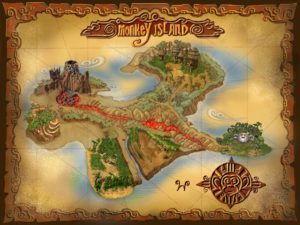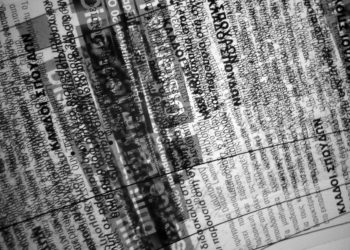
Dear Reader,
You may recall the kerfuffle of last year when Wikimedia decided that a picture, taken by the British photographer David Slater, of a Crested Black Macaque belonged the public domain “because the monkey took the picture”. I wrote about it here. Now, in the comments for that item were some rather interesting observations from a gentleman by the name of Boris Ogon. He took the trouble to link to a pdf of legal thinking on copyright by Justin Hughes, then Professor of Law at the Cardozo School of Law in New York. The article is full of clearly articulated (if somewhat brain hurting) thinking on what might or might not be copyright-able when it comes to images.
I read it (Thanks Boris for the link) but before I could organize my thoughts to maybe blog about it, the issue faded away as these things are want to do. But I have thought regularly since then of the plight of the individual, trying to protect the things that they make from exploitation. When it comes to images, the lone photographer frankly has a hard time protecting their assets from freeloading. To republish and basically dare the photographer to do something about it, seems to be the modus operandi of a great many agencies and organizations that frankly should know better. But why am I writing again about it?
PETA.
Yes, People for the Ethical Treatment of Animals are suing for the right of the monkey (who now goes by the name of Naruto* apparently) to hold the copyright for the picture; copyright which PETA will then presumably enforce via licenses for the work. Just to be clear, they are suing the photographer who was entirely responsible for the image in question.
Nice of them to want to do all that so the monkey can earn a few Rupiah/Quid/Dollars.
At this point I would imagine that David Slater is probably wishing he’d never picked up a camera, let alone invested the time and energy to become so good at what he does. He doesn’t deserve what is happening to him, and frankly what IS happening to him is a mockery of the legal system. At some point; some not too expensive point I hope, this will get thrown out of court, because if it doesn’t it will have a chilling effect on wildlife photography.
Animals can’t assert copyright. This was the whole argument that Wikimedia used to justify the poaching of the image and the subsequent declaration that it must be a public domain image. One can only wonder why PETA has not gone after all the organizations that have reproduced the image in question. If this case actually changes that, then presumably animals will have rights over their images. How many animals could be said to have agency in taking photographs? A decision for the animals would presumably mean that any image taken via remote release or beam tripping, would come into scope (the animal took the picture by enabling the shutter to be opened). A camera strapped or otherwise attached to an animal would presumably deliver footage that the animal could assert copyright over; footage like this. Perhaps in this new world of copyright holding animals, some sort of model release form will be required for any animals that are part of a wildlife documentary, especially if the footage or photographs are from a structured reality sequence that’s representative of what might happen in the wild, but isn’t film-able on location. I’ll just leave you to think further on the consequences of such a decision.
Now as I understand it, the reason animals cannot hold copyright, is that only things that qualify as original works of authorship can have copyright, and that only humans can produce such works. This is rather interesting. Because there are an awful lot of images out there that might not therefore qualify for copyright protection. The article that Boris linked to, devotes a whole section to the subject of whether satellite imagery qualifies for protection (pgs 69 through 75). This was a bit of a eye-opener to me as I just assumed that if you’d gone to the multi-million pound trouble of getting an image sensor into orbit, and had the means to pick up the downlink, then you owned the copyright as completely as it is possible to do. But no – any images taken with the explicit intent to be mechanical and representative of reality apparently don’t qualify because they fail the test of creativity. This is where copyright on the basis of an image seems to collide with the more appropriate (though by no means universal) database copyright that would, especially in the digital age, protect and assign rights to the data coming off a sensor.
So… if by some chance PETA are successful, and it turns out that a non-human entity can hold copyright. I wonder how long it will be before somebody tries it on with an argument that a satellite needs to own the copyright of the images it produces. A copyright that will be managed by the agency that put it up there? You may think this a fatuous argument – I direct you to the matter that sparked this blog post! But actually, there’s another point still about creativity in non-human entities.
Consider the case of an AI (artificial intelligence) that has been taught how to be creative. Not possible! I hear you cry. Au contraire my friends. Google has one. Not only have they been teaching it to recognise various objects and images, they’ve been teaching it to create its own. You can see what it has done here… Were it a human, its creations would almost certainly pass the test of authorship and originality, at some point, if not now (see the images at the bottom of the linked page). If you can give an animal copyright…
This Kafkaesque chain of events is severely affecting a person, and may possibly (one would say not, but you never know) end up having some fairly serious knock-on effects in terms of what can hold copyright. It’s not apparently always legally correct to state that if you go to the trouble and effort to obtain a set of images from some particular activity, you should have the copyright to then do with as you see fit. It should be. Because then this nonsense simply couldn’t happen.
*Yes – our titular Macaque is apparently a fan of Japanese Manga (I must confess I didn’t know they could read) and has taken a name of an adolescent ninja who is searching for recognition.
Discussion
12 Thoughts on "The Curse of Monkey Island"
Oh boy. So in the legendary saying about the number of monkeys that would be needed to produce Shakespeare, said monkeys could therefore not hold copyright, if they achieved this outcome, because it was an act of randomness?
Taken to extremis then, we, humans, are essentially a random consequence of evolution (assuming even convergent evolutionists wouldn’t say consciousness was inevitable). So is not all human creativity a random outcome, in the overall scheme of things. 🙂
But to a more local concern, you state “But no – any images taken with the explicit intent to be mechanical and representative of reality apparently don’t qualify because they fail the test of creativity.” Isn’t this the case for just about any image in a scientific journal – chromatograms, Western Blots, subatomic collision photos etc are mechanical and representative of reality, surely? Press a button and out they (eventually) come. Are they copyrightable? Can authors or publishers or other agents assert rights on reusage?
The creativity is then in the design of the experiment rather than the outcome (as in the creativity is in the design of the satellite and propulsion into space, not in the resultant photo of ‘reality’).
My brain now hurts.
The monkeys who set out to re-create Shakespeare succeeded. The project was completed over a period of about 25 years by one bipedal ape who apparently went by the name “William Shakespeare.” The PETA situation is philosophically more complex than the nature of copyright. It is a publicity stunt, of course, and is successful insofar as it invites us to ask questions about what makes us human and whether that is a distinction without a difference.
You must read this interview with the PETA lawyer: http://motherboard.vice.com/read/did-peta-name-the-right-macaque-in-its-monkey-selfie-lawsuit.
Apparently they have to also “prove” that the monkey knew it was taking a picture. They claim that monkey, without a doubt, knew that when he pushed a button, he saw his image and can then be deemed the operator and creator. Also called into question are pieces of “art” created by zoo animals (think elephants using their trunks to smudge paint all over a canvas), which then the zoo sells as a fundraiser.
So the satellite thing is interesting to note. With drones shooting photos at preprogrammed intervals, this will only get murkier.
What PETA is doing is silly, and I say that both as an animal lover and a vegetarian. That said, Wikipedia is not poaching, the work is in the public domain because an animal can’t hold copyright. The copyright office is quite clear on the topic. Wikipedia’s use of the photo certainly brought information to light about what is and what is not protected under Title 17 but it is not poaching and to suggest that they are is a classic example of the ‘chilling effect’ by suggesting that something that is completely legal is not. Had the photographer chosen a different means of taking the pictures, a remote shutter, he’d have the copyright. He didn’t, he doesn’t.
“Original” in copyright law means only that the work was created independently by the creator, not by relying upon a previously created work of the same type. The bar for creativity in copyright is very low. The Supreme Court in the 1991 Feist case ruled that creation of a phone book using the scheme of alphabetization was not creative enough to qualify for copyright protection. But it doesn’t take much creativity beyond that to make a work eligible for protection. Originality and creativity do not mean the same in copyright law, but you apparently are using them as synonyms here.
and when the monkey, the satellites, the databases, etc., start making money from their work, they can pay taxes on it.
I suspect that the reason that PETA is doing this is that it’s part of a larger effort by animal rights activists to establish non-human primates as legal “persons” in an effort to end both testing on non-human primates, and end the keeping of non-human primates in inhumane conditions. Earlier this year they had some success with the effort when a New York court temporarily issued a writ of Habeas Corpus for two chimpanzees at SUNY’s Stoney Brook research facility.
http://www.bbc.com/news/world-us-canada-32396497
Another was requested for two chimps kept in very small cages by their private owner, and because the chimps were found to be incapable of shouldering duties and responsibilities, that motion was also denied. (I should note that my ‘tween daughter would also fail that test, so I’m hoping her personhood isn’t called into legal question anytime soon.)
PETA has also filed similar lawsuits against SeaWorld in an attempt to secure the release of orcas held in captivity there.
More about the strategy here: http://www.nytimes.com/2014/04/27/magazine/the-rights-of-man-and-beast.html
I’m sure you meant to credit the source of both the article title and the accompanying graphic. For any who may not be aware, “The Curse of Monkey Island” is an video game put out by Lucas Arts in the 90’s as part of the “Monkey Island” series, and the map is (I believe) from “Escape from Monkey Island” which is also part of the same series. It’s a small point, but in an article about copyright I thought it might be worth pointing out.



